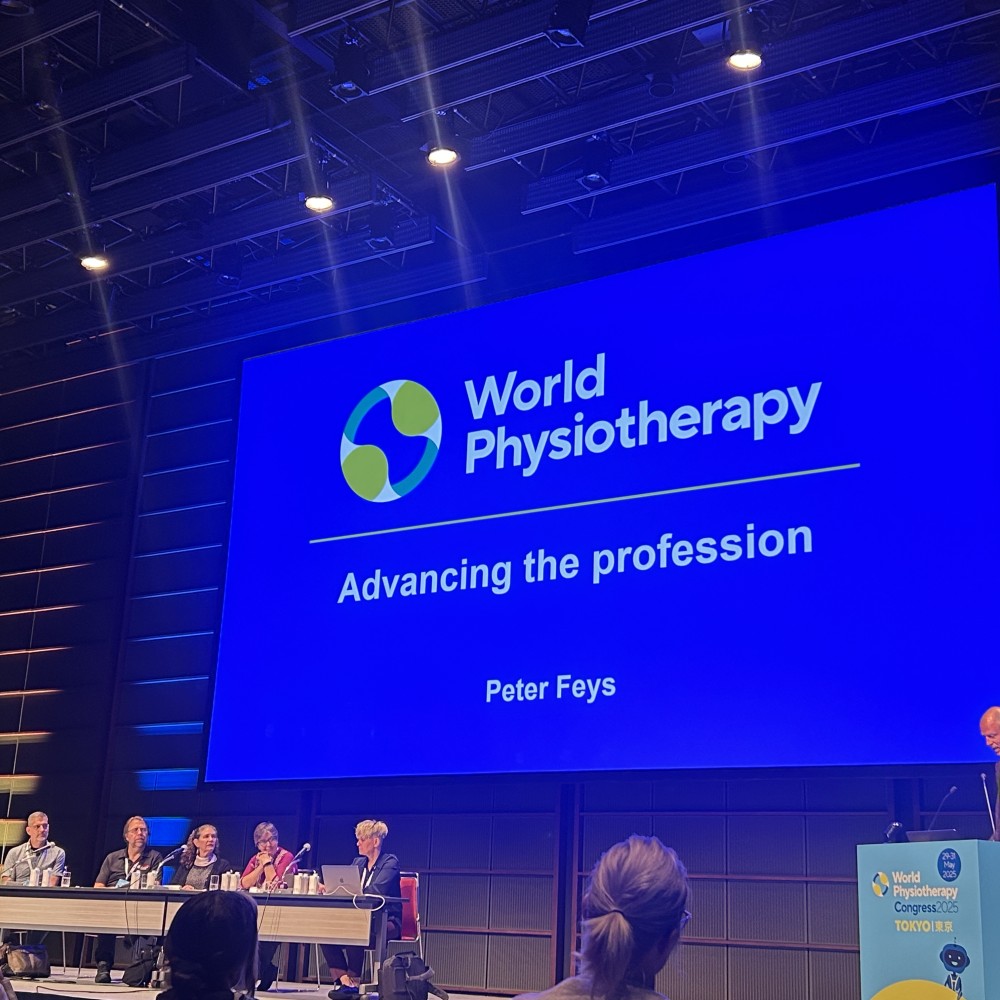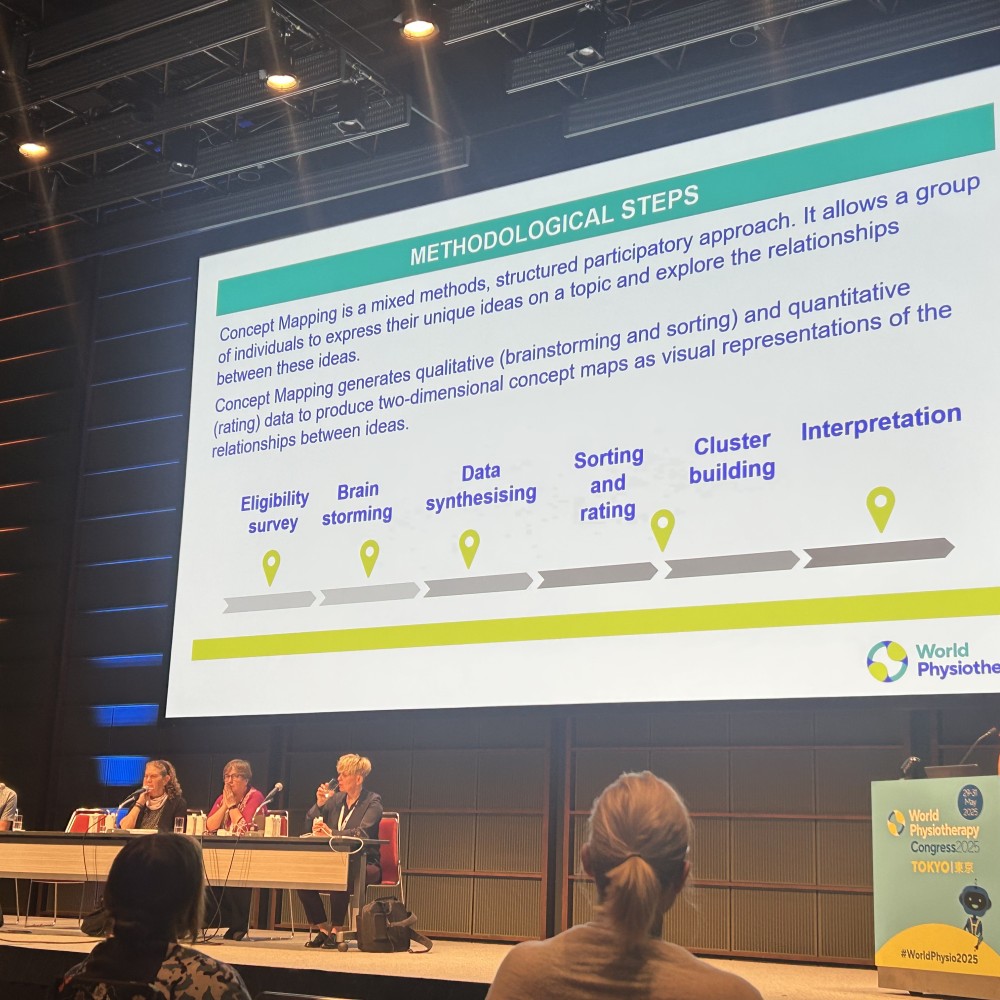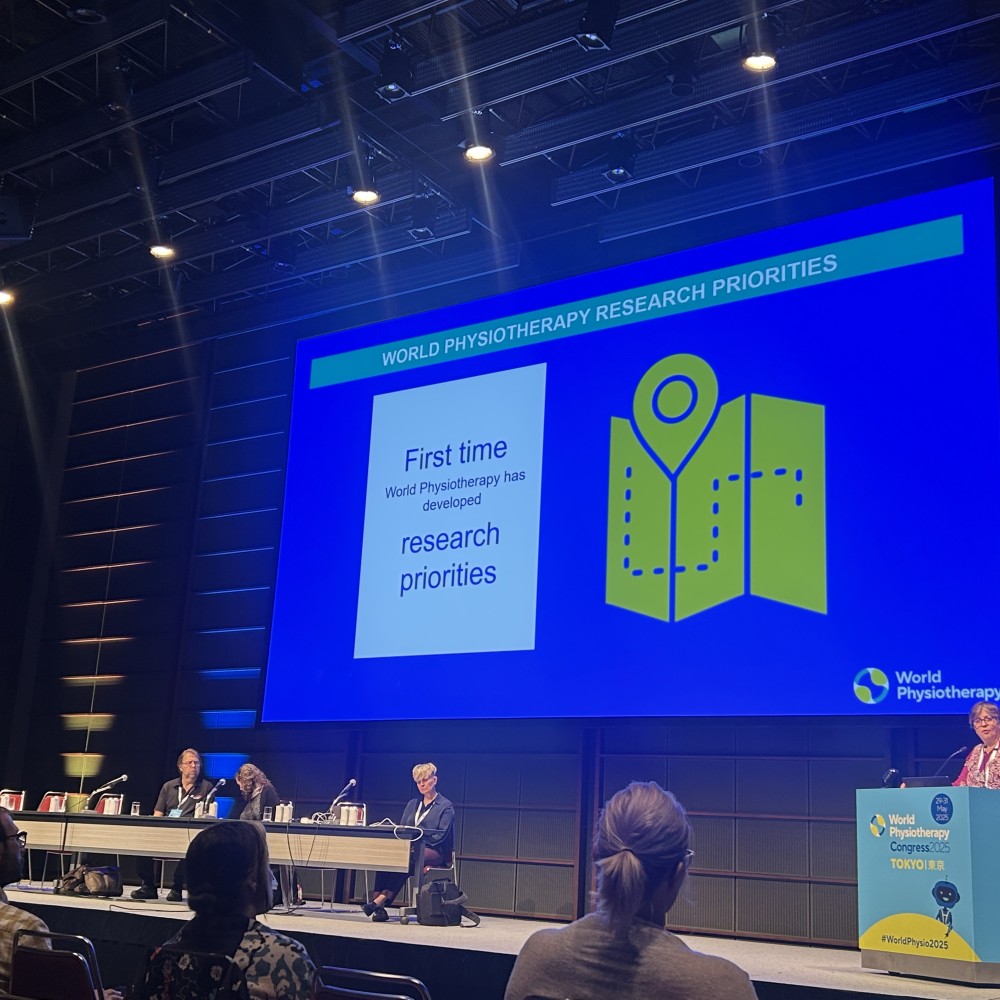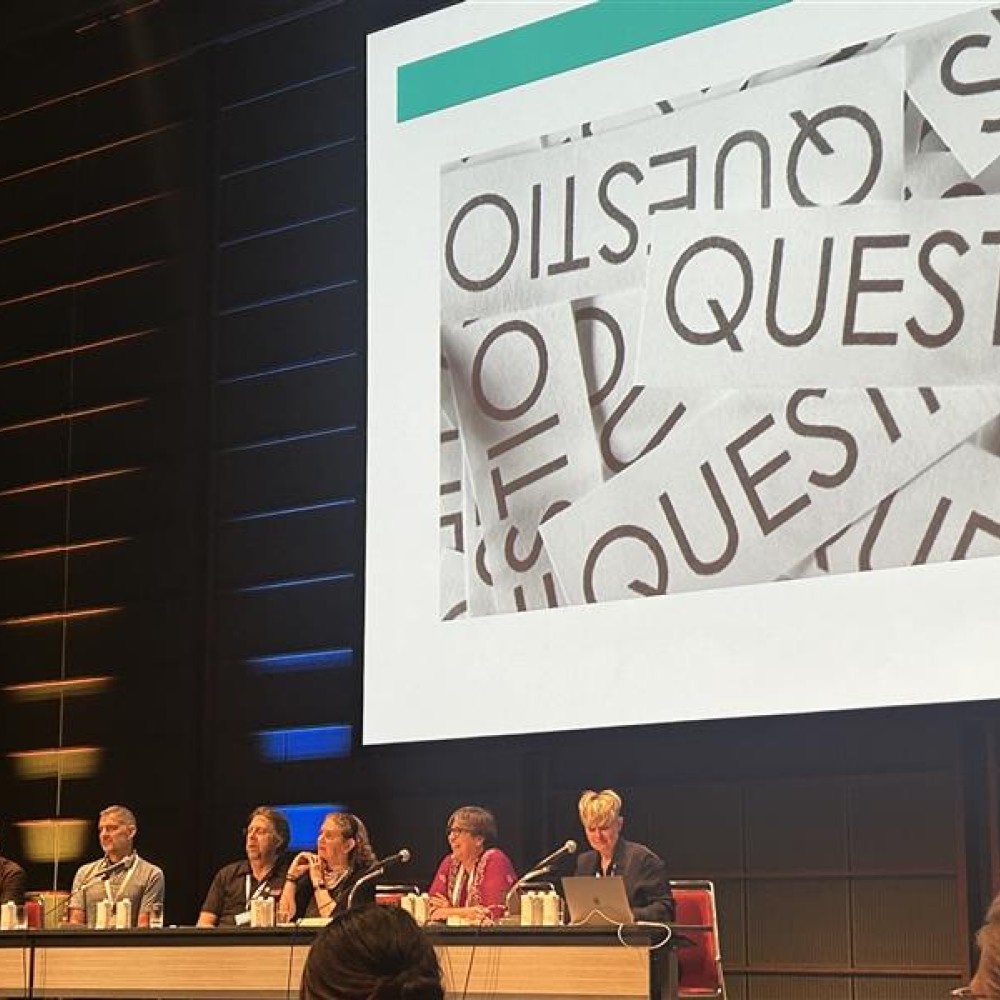For the first time in its history, World Physiotherapy is undertaking a global initiative to identify research priorities that reflect the collective needs of the profession. Presented at the World Physiotherapy Congress 2025, this pivotal session outlined the rationale, process and early findings of the ongoing project, which is due to be finalised in late 2025.
The session, chaired by Jackie Whittaker (Canada), brought together an expert international panel, including Karim Alvis (Colombia), Alex Donaldson (Australia), Judith Deutsch (United States), Peter Feys (Belgium) and Mark Elkins (Australia). Together, they detailed a participatory process designed to strengthen evidence-informed practice and guide investment in physiotherapy research over the next decade and beyond.
Jackie Whittaker explained that while many World Physiotherapy member organisations have research policies, few have defined research agendas or prioritised professional issues. “What we identified was a significant gap,” she said. “We’ve never had a shared, global list of research priorities to help guide funding, advocacy or practice. This project aims to change that.”
The methodology—led by Alex Donaldson of La Trobe University—uses concept mapping, a structured mixed-methods approach that incorporates qualitative input with statistical modelling. In total, 374 research statements were generated from 49 participants and refined into 64 unique ideas. These were then sorted and rated by participants according to importance and feasibility.
“The process helps visualise how ideas relate to one another,” Alex explained. “By clustering the data, we can reveal meaningful domains that reflect the diverse needs of the profession globally—beyond just clinical conditions to include broader professional issues.”
While the analysis is still underway, the team is exploring how best to group the 64 prioritised statements into meaningful clusters. Early modelling suggests the final structure will include between eight and ten domains, with expert consensus guiding the final labels and framework.
The session also addressed how the final list will be used. Mark Elkins emphasised that priority identification is only the beginning. “This list should drive research funding, inform advocacy, and help institutions align their research strategies with what matters most to the profession,” he said. Plans are in place to monitor uptake through downloads, citations, and member feedback.
Importantly, the list will not be static. A formal review is planned after ten years, but ongoing input and earlier revisions will be possible if global needs evolve. The initiative also aligns with the World Health Organization’s Rehabilitation 2030 agenda and the World Rehabilitation Alliance, which encourages greater engagement with health systems and policy research.
By inviting input from physiotherapists, researchers, journal editors and organisations from all regions and income settings, World Physiotherapy is building a foundation for more strategic, globally aligned research investment—ensuring the future of the profession is shaped by shared priorities and inclusive participation.





